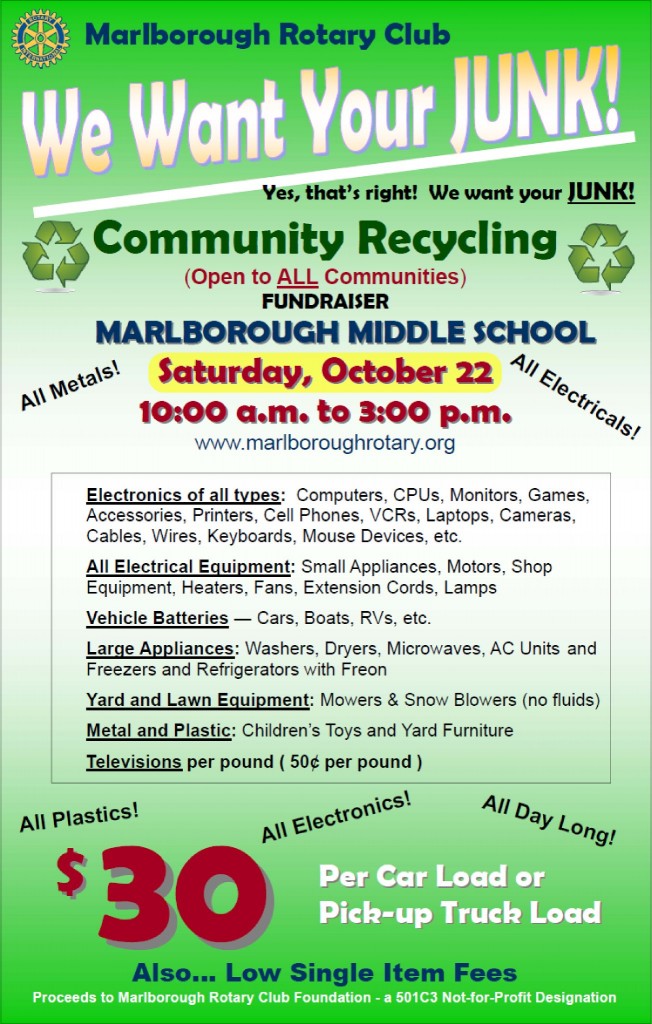
November 17, 2012 Assabet Valley High School 6 p.m. on. If you have never seen it, it’s amazing. Tables of items such as blenders, electronics, gift baskets, turkey baskets, turkeys and more. $1.00 raffle ticket gets you a chance at winning one of the items. Come and support the Marlborough community with the Marlborough Rotary Club for this fun filled event. Ask anyone you know in Marlborough if they have been and they will tell you, you have to see it to believe it.
Thank you to the many Marlborough attendees over the years who have supported the Turkey Shoot. This is our 30th year and we would love to make it a great success for the Marlborough community.
Funds raised from this event help to provide Thanksgiving meals and holiday toys and meals for Marlborough residents.
Please contact your local Marlborough Rotarian with any questions and see you at the Shoot!

